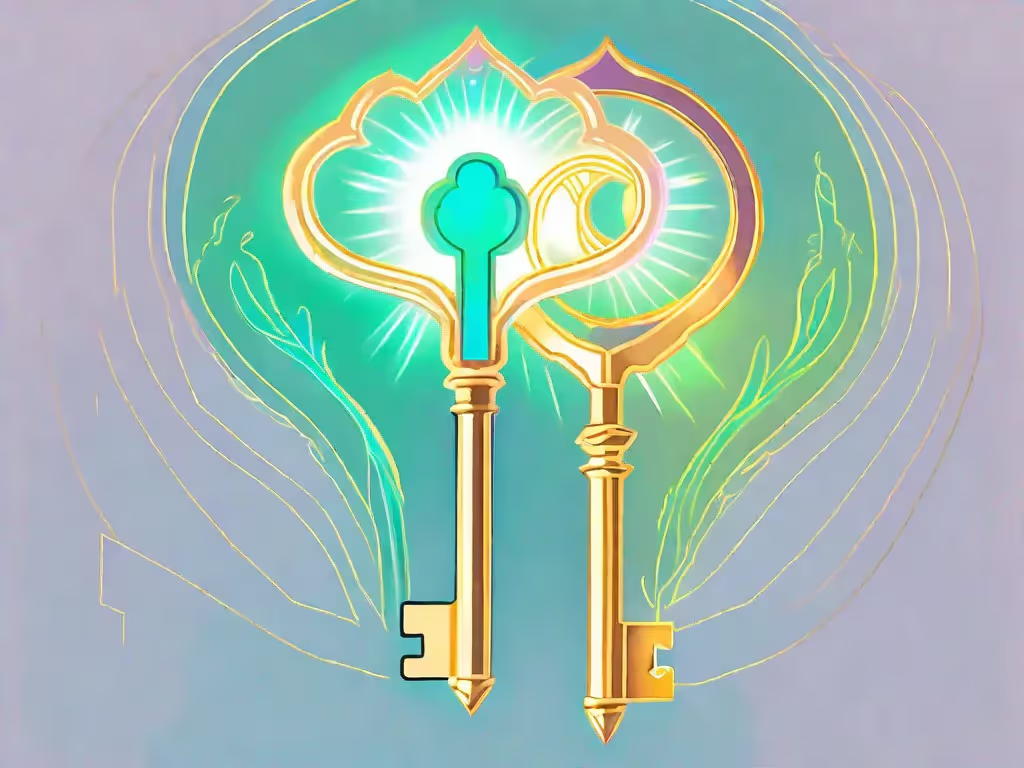For over two millennia, Confucian philosophy has been one of the guiding forces of Chinese society. It has influenced everything from family values to government policy, and its teachings continue to be relevant and inspiring today. In this article, we will explore the origins and development of Confucianism, its key principles, and its influence on various aspects of Chinese culture.
The Origins of Confucianism
Confucianism is one of the oldest and most widely practiced religions in the world. It originated in the Spring and Autumn period of Chinese history, around the 5th century BCE. It was founded by the philosopher and teacher Confucius, who lived from 551 BCE to 479 BCE. Confucius was a scholar and government official who was concerned about the moral decay and political corruption of his time. He believed that the solution to these issues was to revive the traditional values of Chinese society, which he saw as centered around the concept of ren (benevolence).
Confucius was known for his teachings on morality, ethics, and politics. He believed that individuals should strive to be virtuous and that society should be organized around the principles of honesty, respect, and compassion. His teachings emphasized the importance of education, self-cultivation, and social responsibility.
The Life of Confucius
Confucius was born into a noble family in the state of Lu, in what is now Shandong province. He worked as a teacher and government official throughout his life, but his ideas and teachings were not widely accepted during his time. Despite this, he continued to teach and write, and his ideas were eventually collected and compiled into a book called the Analects.
Confucius was known for his humility and his dedication to his students. He believed that education was the key to personal and social improvement, and he spent much of his life teaching and mentoring young people. His teachings were based on the idea that individuals should strive to be good, not just for their own benefit but for the benefit of society as a whole.
Historical Context and Development
Confucianism developed in a time of great social and political change. It was a time of warfare, political fragmentation, and social upheaval. The teachings of Confucius offered a sense of stability and order, and they emphasized the importance of social harmony and collective responsibility.
Confucianism gradually became the dominant ideology of the Han dynasty (206 BCE-220 CE) and has continued to be influential in Chinese society ever since. Its teachings have been adapted and modified over the centuries, but the core principles of Confucianism remain the same.
Today, Confucianism is practiced by millions of people around the world. Its teachings have influenced Chinese culture and society for thousands of years, and they continue to be relevant today. Confucianism emphasizes the importance of education, self-cultivation, and social responsibility, and it offers a powerful vision of a just and harmonious society.
The Five Key Principles of Confucianism
Confucianism is a philosophical and ethical system that has been an important part of Chinese culture for over 2,000 years. At the core of Confucian philosophy are the Five Key Principles, which serve as a guide for personal conduct and social order. These principles have been passed down through generations and are still relevant today.
Ren (Benevolence)
Ren is the foundational principle of Confucianism. It refers to the quality of being humane, compassionate, and empathetic towards others. In Confucian philosophy, ren is the basis of all human relationships, and it is seen as the key to social harmony and moral order. Ren is not just about being kind to others, but also about cultivating a sense of empathy and understanding towards those around us. It is about treating others the way we would like to be treated ourselves.
Ren is not just limited to our relationships with other people, but also extends to our relationship with nature. Confucianism stresses the importance of living in harmony with the natural world and treating the environment with respect and care.
Yi (Righteousness)
Yi refers to the quality of being upright, just, and principled. It is closely linked to the idea of morality, and it emphasizes the importance of doing what is right rather than what is expedient or self-serving. Yi is not just about following the law or rules, but about having a strong sense of personal ethics and integrity.
Yi also involves standing up for what is right, even in the face of adversity. Confucianism places a high value on courage and the willingness to do what is right, even if it is difficult or unpopular.
Li (Ritual Propriety)
Li refers to the proper way of doing things, according to social norms and customs. It includes everything from manners and etiquette to religious rituals and ceremonies. In Confucian philosophy, li is seen as a way of expressing respect for others and for the social order.
Li is not just about following rules and traditions, but about understanding the underlying principles behind them. Confucianism stresses the importance of understanding the reasons behind social norms and customs, and of adapting them to changing circumstances.
Zhi (Wisdom)
Zhi refers to the ability to make sound judgments and decisions based on experience and knowledge. It emphasizes the importance of education and self-improvement, as well as the need to constantly strive for personal and social betterment.
Zhi is not just about acquiring knowledge, but also about applying it in a practical and meaningful way. Confucianism stresses the importance of using wisdom to make positive changes in the world around us.
Xin (Integrity)
Xin refers to the quality of being honest, trustworthy, and reliable. It emphasizes the importance of integrity in personal relationships and in government and social institutions. In Confucian philosophy, xin is seen as the foundation of moral authority and social order.
Xin is not just about being honest and trustworthy, but also about being accountable for our actions. Confucianism stresses the importance of taking responsibility for our decisions and their consequences, and of making amends when we have done wrong.
These Five Key Principles of Confucianism are not just abstract concepts, but are practical guidelines for living a meaningful and fulfilling life. They emphasize the importance of personal responsibility, social harmony, and moral integrity, and provide a framework for making positive changes in the world around us.
The Role of Family and Social Relationships
Confucian philosophy places a great emphasis on the importance of family and social relationships. These relationships are seen as the building blocks of society, and they are governed by a set of principles and values that emphasize mutual respect, duty, and harmony.
Filial Piety
Filial piety is one of the most important concepts in Confucian philosophy. It refers to the duty of children to respect and care for their parents, as well as the obligation of parents to raise and educate their children properly. Confucianism places a great emphasis on the importance of the family as a source of moral and social order.
The Five Relationships
The Five Relationships are a set of hierarchical social relationships that are central to Confucian philosophy. These relationships are between ruler and subject, father and son, older brother and younger brother, husband and wife, and friend and friend. Confucian philosophy emphasizes the importance of each relationship and the duties and obligations that come with it.
The Concept of Junzi (The Ideal Person)
In Confucian philosophy, the junzi (the ideal person) is someone who embodies the principles and values of Confucianism. The junzi is a model of moral behavior and social responsibility, and he or she is committed to personal improvement, social harmony, and the well-being of others.
Confucianism in Education and Government
Confucian philosophy has had a profound impact on education and government in China. Its principles and teachings have informed everything from the imperial examination system to the modern Chinese education system.
The Importance of Education
Confucianism places a great emphasis on the importance of education. In Confucian philosophy, education is seen as the key to personal and social improvement, and it is seen as a lifelong pursuit. Confucius himself was a teacher, and he believed that education was the key to moral and intellectual development.
The Confucian Examination System
The Confucian examination system was a system of civil service examinations that was used in imperial China to select government officials. This system was based on Confucian principles, and it placed a great emphasis on education and personal virtues. The examination system helped to create a meritocratic system of government that was based on the principles of Confucianism.
Confucianism and the State
Confucianism has had a significant impact on Chinese political thought and government. Its principles and teachings have been used to justify everything from authoritarian rule to democratic reform. Confucianism emphasizes the importance of social order, moral authority, and collective responsibility, and these ideas continue to be relevant to debates about governance and politics in China today.
Conclusion
In conclusion, Confucianism is an influential and inspiring philosophy that has had a profound impact on Chinese culture and society. Its principles and teachings have guided individuals and institutions for over two millennia, and they continue to be relevant and inspiring today. By understanding the origins and development of Confucianism, as well as its key principles and influence on various aspects of Chinese culture, we can gain a deeper appreciation for this remarkable and enduring philosophy.
Aura is Your All In One App for Meditation, Mindfulness Wellbeing
Find peace every day with one app for your whole well-being. There is no one-size-fits-all solution to mental well-being. Aura is the first all-in-one wellness app that learns how to best help you. Discover an endless library of expert-created tracks for your well-being, all taught by the world’s best coaches, therapists, and storytellers. With Aura's personalized recommendations, you can find peace every morning, day and night.



.webp)






.avif)

%20(1).avif)


.avif)
.avif)
.webp)


.avif)


















































































































.avif)

















.svg)









